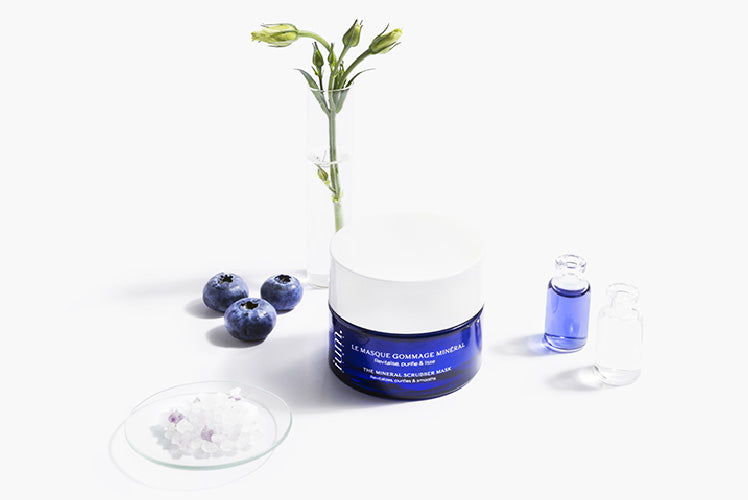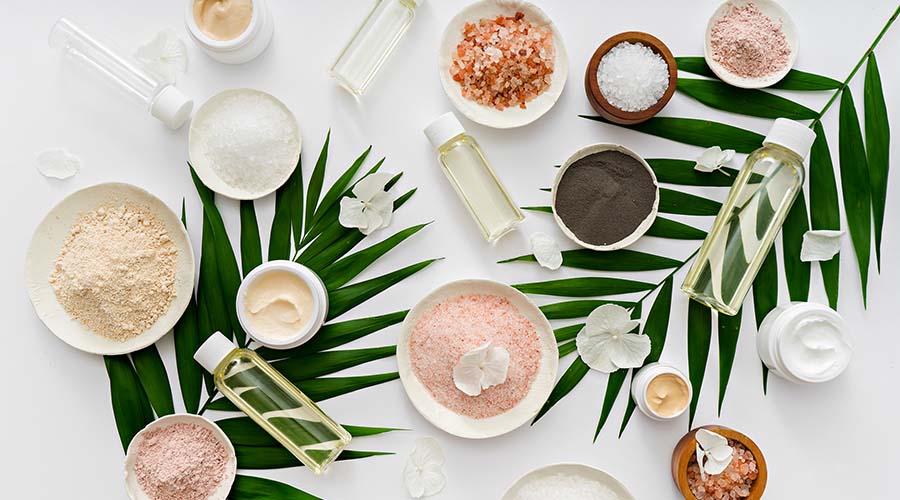How to care for sensitive skin

Taking care of your skin is essential to preserving its balance and natural beauty. This is all the more important for sensitive skin, which can easily suffer from irritation, redness and tightness.
If you have delicate skin, you know how difficult it can be to find products and skincare products adapted to your specific needs. This article aims to help you better understand the causes of skin sensitivity, share tips for soothing your skin on a daily basis, and suggest a suitable skincare routine. You'll be able to take care of your sensitive skin with complete peace of mind, avoiding common mistakes and adopting good practices to keep it soft and supple.
UNDERSTANDING THE CHARACTERISTICS OF SENSITIVE SKIN
Understanding sensitive skin is essential to adopting appropriate skin care products. This type of skin overreacts to environmental factors or cosmetic products, leading to feelings of discomfort, irritation and sometimes itching. People with sensitive skin are likely to experience redness, tightness, tingling and rashes more frequently than those with normal skin. Sensitive skin can also be drier or oilier, depending on the individual.
Skin sensitivity can be due to a variety of internal factors, such as genetics, hormones, stress and certain skin conditions. For example, some people may have a genetic predisposition to sensitive skin, while others may develop sensitivity due to hormonal fluctuations or medical conditions such as eczema or rosacea.
External factors are also responsible for skin sensitivity. Climate variations, pollution, irritating cosmetics, aggressive skin care and excessive sun exposure can all contribute to skin sensitivity. It's essential to be aware of these factors to adapt your skincare routine and preserve the health of your delicate skin.
COMMON MISTAKES TO AVOID FOR SENSITIVE SKIN
To preserve the health and comfort of sensitive skin, it's important to avoid certain common mistakes that can make the situation worse.
First of all, it's essential to be careful about the products you use. Products containing irritating ingredients, such as alcohol, synthetic fragrances, artificial colorants or certain preservatives, can cause adverse reactions in sensitive skin. It is therefore advisable to choose hypoallergenic products specifically formulated for sensitive skin. All IUM skincare products are dermatologically tested and suitable for sensitive skin! The Gelée Oligo Nettoyante is perfectly suited to cleansing even the most sensitive skin.
Excessive exposure to the sun is another factor that can cause damage to sensitive skin. It's crucial to protect your skin from ultraviolet rays by using sun protection adapted to your skin type, and avoiding exposure during the sunniest hours of the day.
Aggressive skin care products, such as mechanical scrubs, chemical peels or laser treatments, should be avoided or used with caution on sensitive skin. They can lead to irritation, redness and even skin lesions. Choose gentle alternatives adapted to your skin type.
Finally, too much hot water when cleansing can also cause tightness and dryness. It's best to use lukewarm water to cleanse your face and avoid further damaging your sensitive skin.
SIMPLE TIPS TO SOOTHE SENSITIVE SKIN

To soothe sensitive skin, it's important to choose the right products and adopt good practices. Choose products containing gentle, soothing ingredients, such as Aloe Vera, chamomile, allantoin or anti-inflammatory plant extracts like Evening Primrose Oil, found in our Youth Cream. Look for labels and certifications indicating that the product is specifically formulated for sensitive skin, such as "hypoallergenic or "dermatologically tested".
When it comes to cleansing your face, use gentle, circular movements and avoid rubbing too hard. Opt for gentle, soap-free cleansers that respect the skin's hydrolipidic film, such as Gelée Oligo Nettoyante. Also remember to moisturize your skin regularly with creams or serums adapted to your skin type, to maintain a good level of hydration and reinforce the cutaneous barrier.
Don't forget to use sunscreen every day, even on cloudy days, to protect your skin from harmful ultraviolet rays. Choose a sunscreen with a protection factor of at least 30, and make sure you apply a sufficient amount all over your face. Sun protection is a key factor in preventing skin irritation and premature aging.
A CARE ROUTINE FOR SENSITIVE SKIN
Adopting a skincare routine adapted to sensitive skin helps maintain skin health and comfort. Start by cleansing your face morning and night with a mild, soap-free product suited to your skin type. Cleansing removes impurities and excess sebum without harming the skin. Don't forget to rinse thoroughly with lukewarm water and gently dry your face with a clean towel.

Moisturizing is a crucial step in maintaining the balance of sensitive skin. Use a moisturizing cream or serum specifically for sensitive skin, enriched with soothing and anti-inflammatory ingredients. Apply your moisturizer morning and night, massaging gently to promote penetration and stimulate blood circulation. If your skin is particularly reactive, the use of a thermal water or floral water mist can also help soothe irritation and reinforce the skin barrier.
Finally, incorporate specific skincare products into your routine to meet the particular needs of your sensitive skin. For example, use a soothing mask once or twice a week to reduce redness and irritation, and consider applying an anti-redness or anti-inflammatory treatment if necessary. Don't hesitate to consult a dermatologist for personalized advice tailored to your situation.
Caring for sensitive skin is a challenge that requires special attention and an adapted skincare routine. By understanding the causes of skin sensitivity, avoiding common mistakes and adopting good practices, you can preserve the health and comfort of your skin, however delicate it may be.
OUR ADVICE:
Remember to adopt a healthy, balanced lifestyle to preserve the health of your sensitive skin. A varied diet, rich in antioxidants and omega-3s, as well as quality sleep and good stress management, help strengthen the skin barrier and limit inflammatory reactions.
- YOU MIGHT LIKE THIS TREATMENT -



